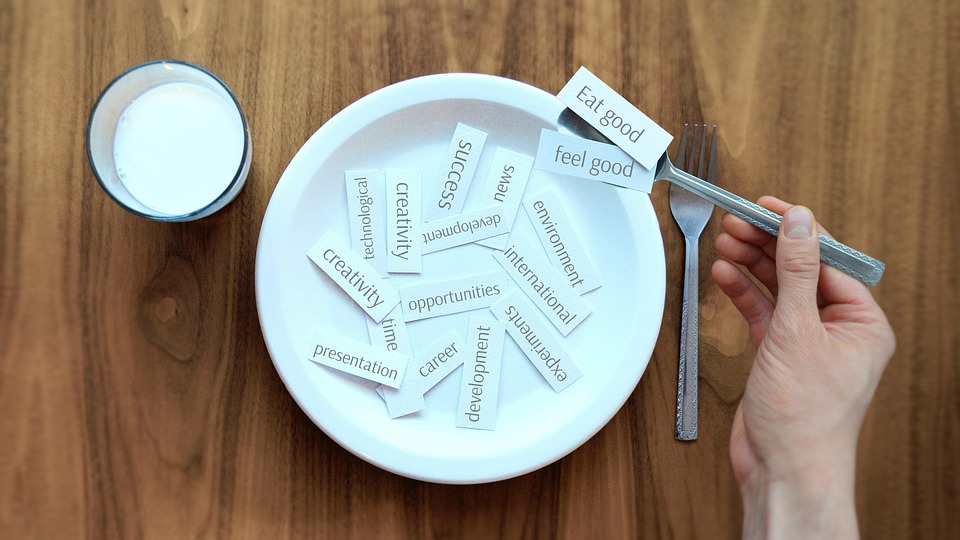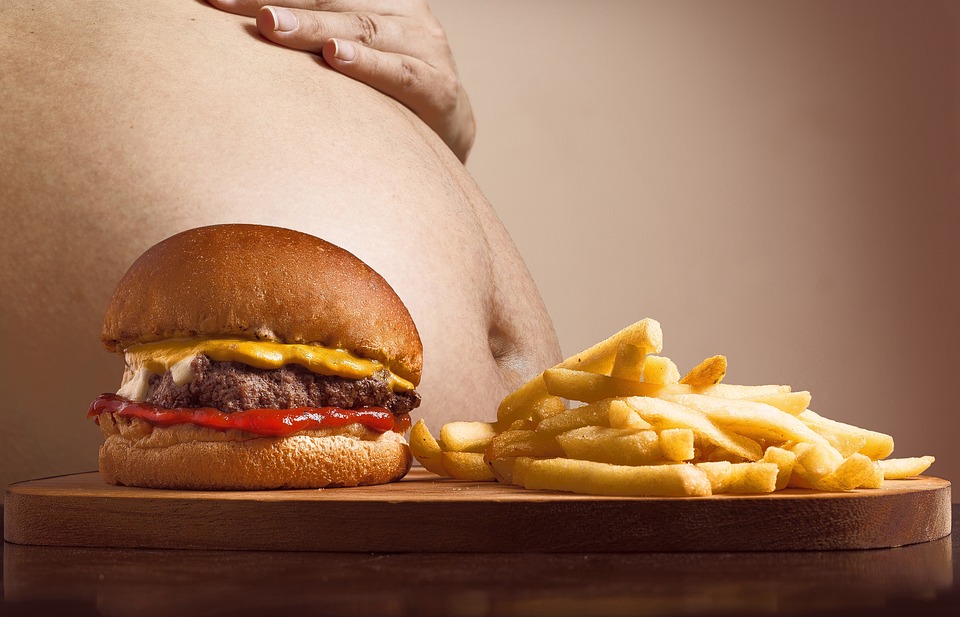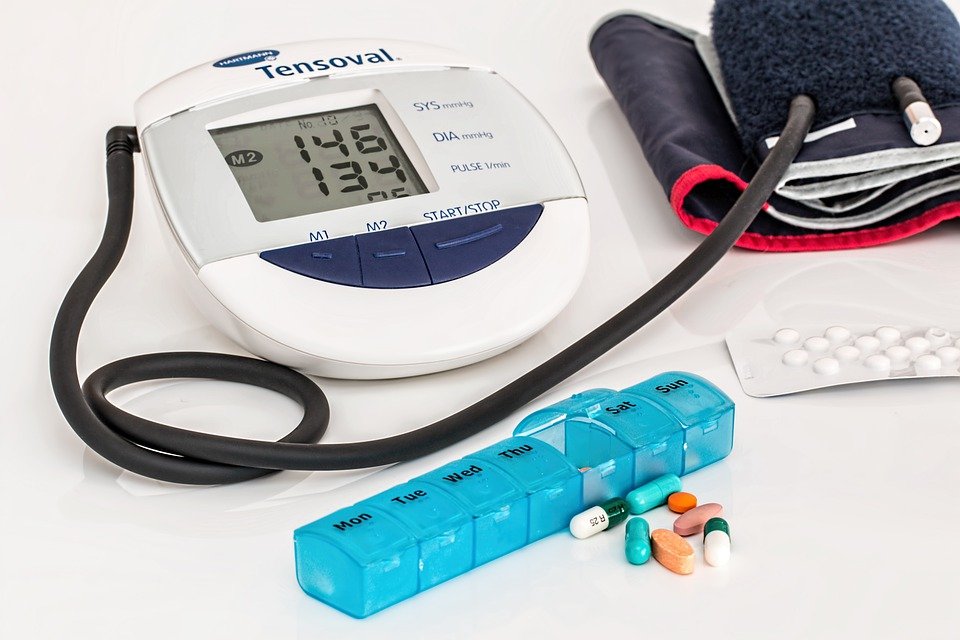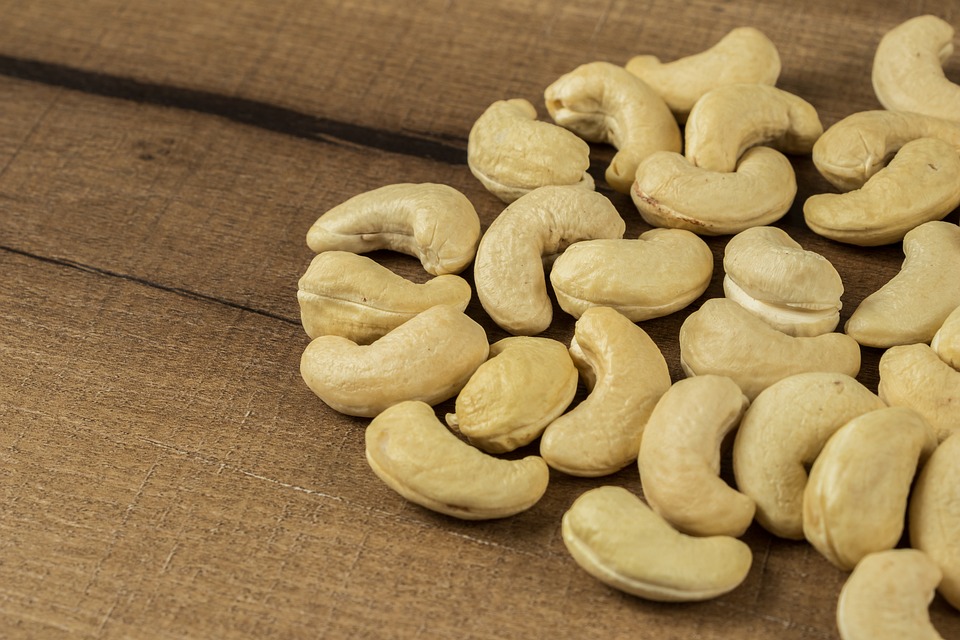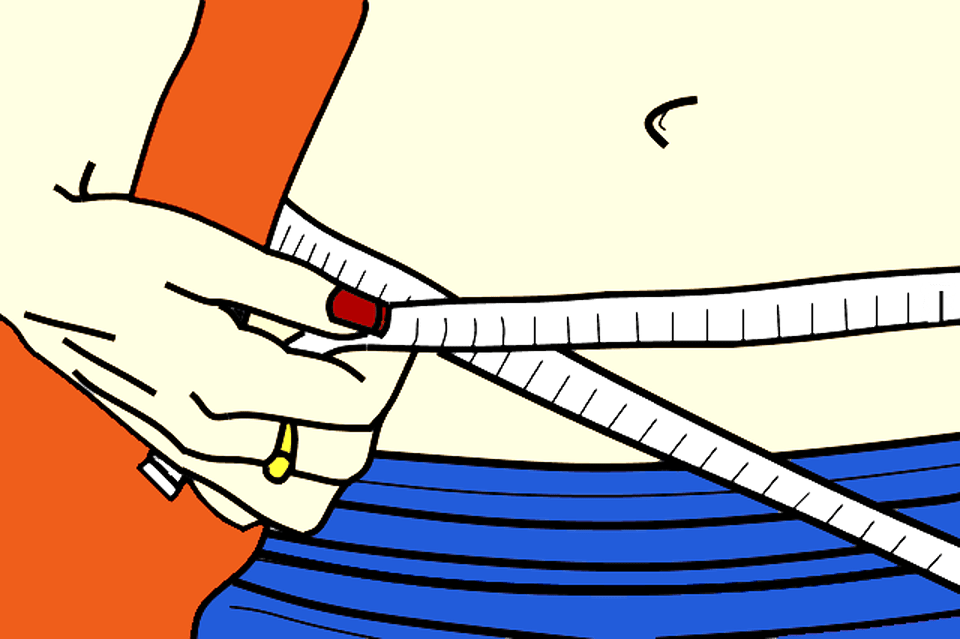
People may have the need to increase their weight for a number of reasons when they are underweight. Genes could be a key factor in maintaining someone’s slimness. Certain health issues may change how food is processed by the body or may impact a person’s eating habits. The initial step for anyone who is having difficulty keeping on enough weight should be to see their doctor to be examined for any hormone issues or underlying medical issues that may be causing a lack of nutrient absorption.
Social pressures could also be behind someone having an underweight body type, with females in particular often wanting to remain thin. A job that is physically demanding but leaves no room for taking breaks to eat. Pupils who are consumed by studying for tests could have difficulty sticking to the times they should be eating. Feelings of distress may lead to changes in eating habits such that during tumultuous times, people may indulge in comfort food and their appetite may rise. For others, appetite may be blocked and remain so for extended periods. It may be financially difficult for someone to afford food if they have to use their income for other expenses.
Having A Purpose For Gaining Weight
Having a purposeful motivation for increasing your body weight may give you the necessary determination to reach your weight gain goal.
It could be that people are looking to enhance their physical attractiveness to draw in potential mates. Self-esteem may be another reason. Athletes who wish to up their physical performance in regards to power, strength, speed, or muscle mass may gain an advantage from putting on weight.
No matter what someone’s purpose might be for increasing their body weight, it is important to be mindful that if the desired outcome is to increase their pace, their progress may be hindered if their weight goes up too much.
Calorific Intake
The importance of this topic when it comes to putting on weight is considerable and is dependent on multiple elements like a person’s age, amount of body weight, gender, metabolism, and the heat created from food when it is eaten (known as TEF), and the amount of physical activity the person engages in.
The body needs a specific quantity of energy every day in order to maintain basic bodily functions while at rest. This sum of calories is commonly referred to as the daily resting energy expenditure (REE), basal metabolic rate (BMR), or simply the resting metabolic rate. The majority of energy utilized by the body is devoted to ensuring the day-to-day metabolic processes of its cells, taking up approximately 60-70%. Examples of this type of activity include monitoring heart rate, breathing, and regulating body temperature. Different equations are utilized for evaluating REE or BMR based on medical issues, age, being overweight, and other considerations. The Harris-Benedict formula is a commonly employed equation for calculating estimated energy expenditure.
Harris-Benedict Equations (calories/day):
+ 86 The formula for calculating a male’s estimated calorie needs is (66.5 + 13.8 multiplied by the individual’s weight in kilograms) plus (5.0 multiplied by the male’s height in centimeters) minus (6.8 multiplied by the male’s age) plus 86.
Formula to calculate the Basal Metabolic Rate (BMR) of a female: Multiply her weight in kilograms by 9.6, add 665.1, multiply her height in centimeters by 1.8, subtract 4.7 times her age, and the total is the BMR.
(weight in kilograms, height in centimeters, age in years)
The thermic effect of feeding (TEF) is an uptick in energy expenditure that results from digesting, absorbing, and keeping food in our bodies. Approximately 10% of an individual’s energy expenditure per day is attributed to it.
The heat produced by the body during all its daily activities apart from resting is known as the Thermic Effect of Activity, or TEA. This energy expenditure can reach up to 20-30% of the overall energy used by the body and can include activities like work, hobbies, and household chores.
We desire to enhance our body weight, rather than merely keeping it the same, and we wish to do so without simply accumulating lots of undesirable fat. The only way to accomplish this goal is to lift weights to add weight to our frames, leading to more muscle mass. In order to achieve this goal, we must boost our daily calorie consumption.
Approximately seventy percent of our muscles are composed of water, while protein accounts for 22%. The rest is composed of fat, carbohydrates, and minerals. By removing the moisture from the muscle that does not provide any calories, one pound of muscle tissue only contains roughly 700-800 calories. It is understood that in order to gain muscle mass, one must consume more calories than their body burns in order to create new muscle.
Research has revealed that from 5 to 8 calories are necessary to sustain the gain of 1 gram of tissue during growth. It is suggested to add one pound (454 grams) to your weight every week. We can estimate that between 2300 and 3500 extra calories should be consumed each week. This would mean that one should consume between 400 and 500 extra calories per day, beyond the amount needed to maintain one’s normal caloric level.
Now that we’re aware of the need for extra calories, what sources can we draw from? We can consume more food quickly which would lead to an increase in calories. We need to add to our dietary intake if we choose to do a strength training program to heighten our lean body mass and entire body weight. This will also raise fat content. The amount of proteins, carbohydrates, and essential fats needed must be determined.
Nutrient Intake For Strength-Trained Athletes
An individual requires anywhere from thirty to sixty calories per kilogram of their body weight in order to successfully participate in various activities, however, the exact number differs depending on the sport they pursue.
Carbohydrates – 6-10 grams per kilogram of body weight
Protein – 1.4-1.7 grams per kilogram of body weight at least 1g of fat per kilogram of body weight should be taken daily to provide enough energy.
Protein:
Proteins can be found in the following items – fillets of lean meats, seafood, poultry, eggs, dairies such as milk, cheese, and yogurt, nut butter like peanut butter, beans, tofu, lentils, and other kinds of legumes, grains including bread and pasta, and also in seeds and nuts.
The proteins in our diet are broken down into individual amino acids, which are then combined with other amino acids naturally produced by the body to create the body’s amino acid supply. The cells of the body make use of essential amino acids from the amino acid stock to produce the special proteins the body necessitates for muscle tissue, hair, nails, hormones, catalysts, and so on. Proteins are vital for keeping up the balance of fluids and regulating the pH of the blood by working as a stabilizer for acidic and alkaline conditions, they also serve as a transporter of vitamins, minerals, and oxygen. Supply carbon for metabolic processes that produce energy, such as the conversion of amino acids to glucose, which is then broken down to make ATP; other carbon molecules can be stored as fat.
Carbohydrates:
Grains like rice, pasta, and bread; starchy vegetables like potatoes and cereals; fruits; non-starchy vegetables; legumes and beans; dairies such as yogurt and milk – these all make up carbohydrate-rich foods.
Carbohydrates aid in producing energy as well as fueling muscular strength and aiding in muscle growth. Carbohydrates are transformed into usable energy, like liver and muscle glycogen, sugars, and starch, to give you the best fuel for conducting physical activities in a proficient and successful way. Fiber is important in keeping bowel function going smoothly. Carbohydrates aid in regulating blood glucose.
Fats:
High-fat foods include nuts, nut oils, flaxseeds, avocados, sunflower, rapeseed, olive oil, and olive oil-based spreads, as well as fish and fish oils.
We, humans, need to get Essential Fats from our diet because our bodies don’t make them. Essential fatty acids are lengthy, fat-like molecules composed of multiple unsaturated bonds originating from linolenic, linoleic, and oleic acids. EFAs support the cardiovascular, reproductive, immune, and nervous systems.
Essential fatty acids are necessary for the human body to produce and fix the cell walls so that the cells can be adequately nourished and get rid of harmful waste materials. Essential fatty acids (EFAs) are essential for the production of prostaglandins, which have the responsibility of controlling different body functions such as heart rate, blood pressure, blood clotting, fertility, and reproduction. They likewise aid in immune capability through managing inflammation and helping the body to fight off infections.
Dietary Supplementation
For certain individuals, nutritional supplementation is essential to boost their calorie intake as there are restrictions on obtaining nutrient-rich solid foods. Protein powders, Maltodextrins, Dextrose, and essential fats can all enhance a nutrition program; however, they can be quite expensive.
Creatine Supplementation
Taking creatine can lead to gaining body mass and increasing strength when doing high-intensity, resistance-based activities that don’t require a lot of rest in between. At the beginning of taking the supplement, people may experience an increase in weight which is just water, however, if they exercise more intensely due to the improved tolerance, it is possible that muscle growth may result in the long run.
Weight Gain With Resistance Training
Resistance exercise places a great strain on a muscle cell, leading to an increase in protein synthesis inside the cells. This results in larger cells due to the addition of more protein. The myofibrils inside each cell can reproduce, resulting in an expanded muscle fiber. In addition, the thickness of the connective tissue surrounding the muscle fiber and each bundle of muscle may extend/grow, resulting in the muscle becoming larger. Fourth, the cell has the potential to enhance its levels of catalysts and energy storage, such as ATP (muscle energy) and muscle glycogen.
The rise in glycogen and protein in the muscles holds extra water, leading to weight gain. Research indicates that strength training could bolster bone mineral density, potentially due to the increased lifting force exerted on the bones by greater amounts of muscle tension. This could lead to a minor gain in weight.
Strength and endurance training can be beneficial for weight control, as it can help to expand muscle mass and bulk and enhance muscle strength. Women who lift weights usually don’t have the same degree of muscle growth that men do, even when going through the same strength-training regimen. However, they can still expect to become more powerful and better able to endure physical activity.
Types Of Resistance Training For Increasing Bodyweight
There are many methods of resistance training. Isometric exercise requires a muscle to work against an immovable object, like trying to tug a stake out of the ground. If you manage to remove the fence post from the earth, then you will do an isotonic-type motion. Isotonic training involves two types of movement.
The concentric movement involves the muscle contracting and getting shorter, similar to what would happen with a bicep curl. The second motion is referred to as the eccentric phase, which implies that the muscle is stretching in spite of the fact that it is still contracting. An example of this is during the lowering phase of a bicep curl, even though gravity is wanting the arm to go down to the beginning position, the muscle is contracting while it is slowing down the object’s descent.
Isokinetic training is another form of exercise that utilizes resistance machines to adjust the resistance as one is working out, just like what happens with machines of the Nautilus variety. Research has demonstrated that utilizing free weights in a resistance-based exercise program yields the most potent results in augmenting the mass and strength of muscle tissue, provided the essential concept of overload is adhered to.
Things To Consider
Individuals who are malnourished usually don’t obtain adequate energy to energize their bodies. Often, they are also suffering from malnutrition. Undernourishment is the result of not consuming enough nutrients such as vitamins and minerals from your diet. If you’re underweight, you may be at risk for the following health issues:
- Delayed growth and development. This is especially true in children and teens, whose bodies need plenty of nutrients to grow and stay healthy.
- Fragile bones. A deficiency in vitamin D and calcium, along with low body weight, can lead to weak bones and osteoporosis.
- Weakened immune system. When you don’t get enough nutrients, your body cannot store energy. This makes it difficult to fight illness. It may also be difficult for your immune system to recover after being sick.
- Anemia. This condition can be caused by not having enough of the vitamins iron, folate, and B12. This can cause dizziness, fatigue, and headaches.
- Fertility issues. In women, low body weight can lead to irregular periods, lack of periods, and infertility.
- Hair loss. Low body weight can cause hair to thin and fall out easily. It also can cause dry, thin skin and health issues with teeth and gums.
Many underweight people are physically healthy. Low body weight is due to a variety of causes, including:
- Genetics. If you’ve been thin since high school and it runs in your family, it’s likely that you were born with a higher-than-usual metabolism. You also may have a naturally small appetite.
- High physical activity. If you’re an athlete, you probably know that frequent workouts can affect your body weight. However, high physical activity also can be a part of an active job or an energetic personality. If you’re on your feet a lot, you may burn more calories than people who are more sedentary (inactive).
- Illness. Being sick can affect your appetite and your body’s ability to use and store food. If you’ve recently lost a lot of weight without trying, it may be a sign of diseases, such as thyroid problems, diabetes, digestive diseases, or even cancer. Talk to your doctor about sudden weight loss.
- Medicines. Certain prescription medicines can cause nausea and weight loss. Some treatments, such as chemotherapy, can reduce appetite and worsen weight loss from illness.
- Psychological issues. Our mental well-being affects every part of our lives. Things like stress and depression can disrupt healthy eating habits. Severe body image fears and distortions can lead to eating disorders. If you’re suffering from damaging emotional issues, talk to your doctor. He or she can help you get the care, assistance, or counseling you may need.
Questions To Ask Your Doctor
- How do I gain weight if I’m not hungry?
- Is being underweight more serious for babies?
- What are some affordable, healthy foods to help me gain weight?
- Should I stop exercising if I am underweight?
- Should I stop taking my prescription medicine if I am underweight?



